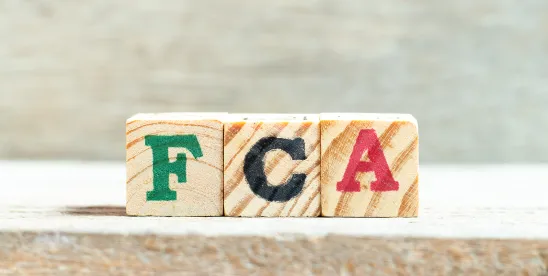On July 15, 2025, the U.S. Attorney for the District of South Carolina filed a complaint in U.S. ex rel. Joyce v. Global Office Furniture, LLC, a qui tam case under the False Claims Act that began when a company insider blew the whistle on a “double invoicing” scheme. The defendants, Global Office Furniture (“GOF”) and its owner, Malcolm E. Smith, allegedly falsified the declared value of office chairs that GOF imported from China. To do this, they worked with the China-based supplier of the chairs to create fake “commercial invoices” that showed prices much lower than GOF was actually paying to that supplier for the chairs. According to the complaint, by lying about the price of the chairs, and creating a fake document trail, the defendants hoped to avoid paying the full 25% duties that applied to those Chinese-made chairs starting in 2019.
That much sounds familiar to anyone who, like me, follows customs fraud cases. These types of “double invoicing” schemes are common, and are often the subject of qui tam cases under the False Claims Act. Also, it should be said that, if the allegations of the complaint are true, there is no question that GOF and Smith were engaged in fraud, and are liable under the False Claims Act. It should come as no surprise that it is illegal to lie to the government about the value of imported goods in the hopes of evading customs duties.
But three other aspects of the government’s complaint jumped out at me.
First, why were the defendants engaging in this scheme? Well, the complaint alleges that the office chairs that GOF imported were sold through Amazon as “Amazon Basics” brand chairs. But Amazon neither manufactured the chairs, nor imported the chairs. Rather, Amazon had an agreement with GOF that GOF could use the “Amazon Basics” brand to sell the chairs, but only at prices that Amazon approved. When the Section 301 China tariffs went into effect in 2019, Smith asked Amazon to approve higher prices that would account for the additional tariff costs. But Amazon wouldn’t approve the full price hikes sought by Smith, but instead approved only a much smaller price increase. Which meant that the only way that GOF could maintain its profitability on the chairs was to cheat on the duties. Which makes me at least wonder: did anyone at Amazon realize, or at even suspect, that this was going to happen? And since, presumably, Amazon gets a cut of the sales of “Amazon Basics” branded good, did Amazon indirectly benefit from the defendants’ customs fraud? (Also, it was news to me that Amazon has so little to do with the manufacture or import of products that are sold under the “Amazon Basics” brand.)
Second, the complaint alleges that on a number of occasions, GOF’s customs brokers were mistakenly given both the “real” and the “fake” invoices for the same shipments. When the brokers asked GOF about this, they were told to use the “fake” invoices, which the customs brokers then did in preparing GOF’s entry summaries. Which makes me wonder: did anyone at the customs brokerage know, or strongly suspect, that GOF was engaging in customs fraud? And if so, why did they allow it to happen? Were they worried about losing GOF’s business if they asked too many hard questions?
Finally, the complaint alleges that once Smith knew that he was being investigated by the Department of Justice (which had served GOF with a civil investigative demand – essentially, a subpoena), he did a number of incredibly . . . how do I say this . . . stupid things. First, according to the complaint, “Smith directed GOF employees to delete emails and documents related to pricing and GOF’s business with Amazon,” and also instituted new “retention” policies assuring that any old emails were quickly deleted. And then, even after Smith knew that the government was looking over his shoulder, the complaint contends that Smith and GOF continued to submit fake invoices and lie about pricing as additional shipments arrived in the United States. I mean… seriously? When you find yourself in a hole, and you know the Department of Justice is staring into it, it’s time to stop digging.
What a saga! “Amazon Basics” chairs that Amazon had almost nothing to do with. Customs brokers who, faced with obvious evidence of fraud, look the other way and file false entry summaries. And a defendant who, when caught, tries to burn the evidence, while continuing to engage the exact same fraud. It’s all there in the government’s complaint in U.S. ex rel. Joyce v. Global Office Furniture, LLC.




 />i
/>i
